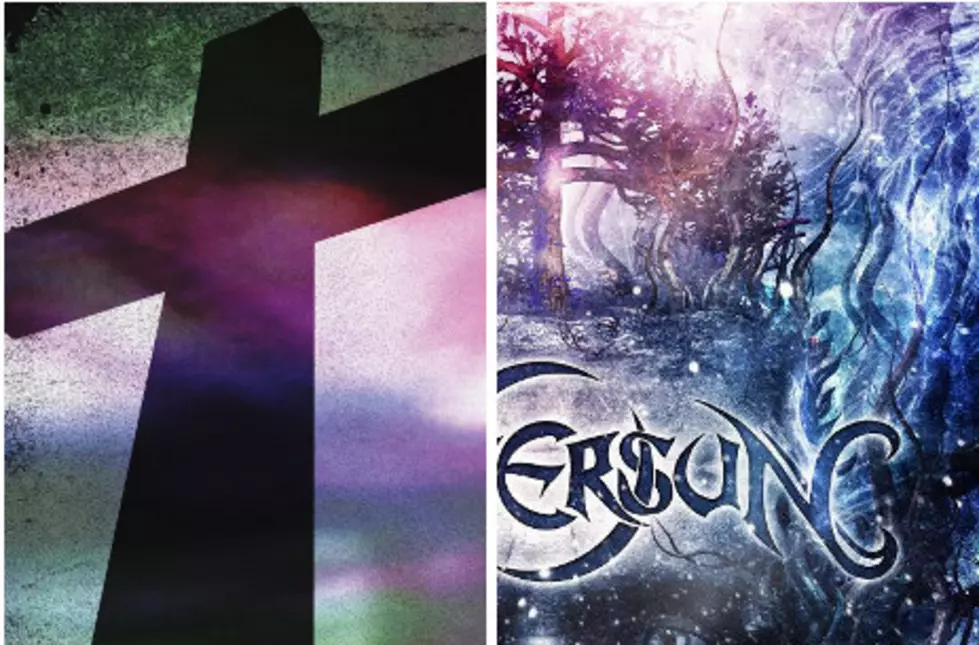
Krallice Look to ‘Deliver the Visceral Hit’ on ‘Diotima’
Krallice are one of the most impressive American black metal bands, and the Brooklynites' new album 'Diotima' is an exercise in extreme, unpolished grimness. If you believe in the old guard when it comes to black metal, this album sounds like should have been birthed in Scandinavia. If you like to stoke the fires of domestic black metal, then you are probably psyched that an American band could create this sort of a discordant and unholy racket. Thanks to the band's intensely brutal style, the album certainly does not go down easy.
Bassist-vocalist Nick McMaster told Noisecreep that the band has "no deliberate desire to make music that is difficult or not easily digestible. As for intensity, isn't that how metal is supposed to be? We're just trying to make music that we find interesting as listeners. After all, between practices and tours, you end up hearing your own band's songs a hell of a lot."
McMaster also believes that this approach can keep metal fresh and new. "Metal's been around for several decades and a lot of smart people have taken it all sorts of interesting places, so I personally just want to carve out something that both has a few new features but delivers the visceral hit I get from my favorite metal records," he said.
The bassist acknowledged that making this type of extreme music isn't easy on the players themselves. "The music is difficult to play, in some respects, but as a player, you are the sacrifice to the execution of a piece," he said.
McMaster, who also designed Krallice's last two album covers, mentioned 'The Clearing' as one of the standout tracks on 'Diotima.' "It was an interesting one to watch. Around 2008, shortly after we'd played our first batch of shows, I got a CD-R from Mick with six complete songs for solo guitar. I forget the exact tracklist, but I know that what became 'Inhume,' 'Dimensional Bleedthrough,' 'Intraum,' 'Dust and Light' and 'The Clearing' was on there. Hmm, I should dig up the sixth!
"The songs in that format have a very different quality: Mick uses drone strings which he strums along with the fretted chord changes, so everything has a kind of gauzy texture and a harmonic center asserted by the open string in question (usually D or A). The overall sound is also very even: it's largely the second guitar, bass, drums and vocals that flesh out the energies inherent in the different riffs, creating a more overt musical narrative. Even so, 'The Clearing' had some parts that were very satisfying from the beginning, so we always knew it would be a joy to arrange. Obviously, we skipped it for 'Bleedthrough' but we'd just refer to it as 'the one we all like.' When we settled on the increased use of unison parts as a loose musical concept for 'Diotima,' it was a natural choice because we liked the core riffs so much we all wanted to play them, rather than build counterpoint off them."
With the US upping its game in regards to black and extreme metal in recent years, McMaster was able to assess Krallice's place in the grand scheme of underground metal. While he feels that "the US has always been producing good extreme metal," he agreed that a recent uptick in quality is definitely noticeable.
"When I got into it in the mid-to-late '90s, there was a conception that black metal specifically came from certain places in Europe, and couldn't be made elsewhere," he said. "It seems ridiculous to recount now, but that's definitely how I felt and it felt like the general consensus. I mean, it was always horses---, what with Von and Demoncy, Profanatica, Absu, and later Weakling. But these all seemed exceptional."
However, over the course of the last decade, that belief that European black metal was superior shifted. "It began to melt away, and all of the sudden, lots of bands were attempting the form with varying degrees of fidelity to the established ways," McMaster said. "I personally see Krallice as a stage or two later than that; less an outright descendant of black metal than one of the weird Frankenstein-ian monsters that emerges when what were once distinct extreme metal subgenres are just different tropes and figures to build music from. I don't say that glibly, and there's definitely no intention to genre-hop like some sort of metalized Mr. Bungle. It's just how our tastes imprint on the compositions. I had a conversation about the 'waves' or generations of black metal with Portal's Curator and he simply stated that our sound was 'something new again.' I was flattered."
Watch the video for 'The Clearing'
More From Noisecreep









